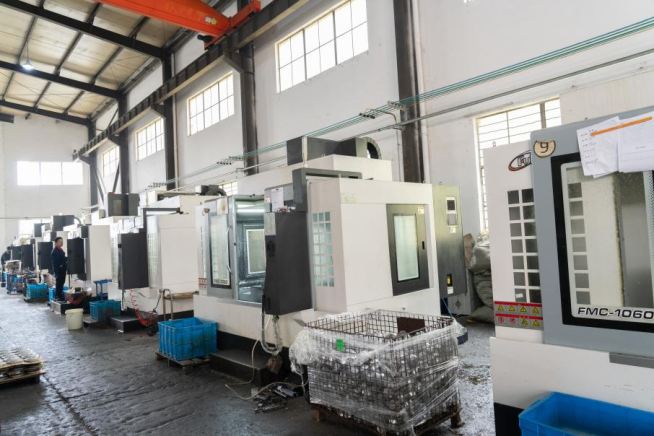How to Improve Product Quality with Precision Aluminum Die Casting
admin 15/08/2025 0
In today's competitive manufacturing landscape, improving product quality with precision aluminum die casting is no longer just an option—it’s a strategic necessity. From automotive and lighting to agricultural and industrial applications, manufacturers are demanding high-performance, reliable, and dimensionally accurate components. This is where precision aluminum die casting shines. In this article, we’ll explore practical ways to enhance product quality using this advanced technique, while showcasing how Tiger Casting’s expert solutions can support your success.

1. Understand What Precision Aluminum Die Casting Really Means
Precision aluminum die casting is not just about pushing molten metal into a mold—it’s a fine-tuned, high-pressure process designed for tight tolerances, smooth finishes, and high structural integrity. It allows manufacturers to create complex, thin-walled parts with minimal post-processing.
At Tiger Casting, we’ve perfected this process using advanced machinery from 280T to 2500T, enabling the production of parts that meet the most stringent quality standards in the USA, Germany, Japan, and beyond.
2. Start with Smart Mold Design
Improving quality begins at the mold design stage. A high-quality mold ensures consistency and dimensional accuracy across thousands of parts. Key considerations include:
-
Proper draft angles to ease part removal
-
Optimized gating and venting systems for uniform metal flow
-
Correct parting lines to minimize flash
-
Material selection for molds (e.g., tool steel for longevity)
Tiger Casting’s engineering team works closely with clients to develop molds that deliver long-term performance and reduce rework costs.
3. Use High-Quality Aluminum Alloys
Not all aluminum alloys perform equally. For example:
-
A360 offers excellent corrosion resistance and strength at high temperatures
-
A380 is commonly used for general-purpose parts due to its fluidity and good mechanical properties
-
A383 is ideal for thin-wall components needing tight dimensions
Choosing the right alloy ensures that parts won’t fail under stress or environmental conditions. At Tiger Casting, we help you select the best-fit alloy based on your application and budget.
4. Control Every Step of the Casting Process
Quality in die casting depends on controlling multiple factors:
-
Melting temperature and holding times
-
Injection speed and pressure
-
Cooling rate and solidification control
These parameters affect the final part’s strength, surface finish, and internal structure. At our facility, every production run is monitored in real-time using sensors and quality tracking systems.
Our in-house spectrometers, X-ray machines, and tensile testing equipment ensure your parts meet all mechanical and metallurgical specifications.
5. Eliminate Defects with In-Line Quality Checks
Defects like porosity, shrinkage, and flash can compromise product quality. That’s why proactive quality inspection is key. At Tiger Casting, we conduct:
-
X-ray inspections for internal flaws
-
Leak tests (custom-designed by our team)
-
Dimensional checks using projectors and hardness testers
-
Surface evaluations using roughness meters
These rigorous checks not only ensure compliance with global standards but also protect your brand reputation.
6. Add Value through Post-Processing and Surface Finishing
Even precision-cast parts may benefit from additional finishing steps. These include:
-
CNC machining for ultra-fine tolerances
-
Powder coating, anodization, or liquid painting for corrosion resistance
-
Mirror polishing and pad screening for improved aesthetics
With Tiger Casting’s one-stop service, you can streamline your production process and eliminate the need to coordinate with multiple suppliers.
7. Design for Manufacturing (DFM) Collaboration
One overlooked way to improve product quality is to involve your casting partner early in the design phase. This ensures:
-
The part design is optimized for casting efficiency
-
Unnecessary complexity is removed
-
Cost and material waste are minimized
Our team at Tiger Casting frequently supports clients during prototyping to identify risks and make early corrections—saving time and money in the long run.
8. Scale Without Sacrificing Quality
Many manufacturers fear that scaling up production will lead to quality drops. With precision aluminum die casting, this isn’t the case—as long as the process is repeatable and well-controlled.
At Tiger Casting, we specialize in medium to large-volume orders. Whether you need 10,000 automotive brackets or 50,000 lighting housings, we maintain consistent quality using automated systems and experienced technicians.
Conclusion
Improving product quality with precision aluminum die casting isn’t just about using the right machines—it’s about optimizing the entire production chain, from mold design and alloy selection to process control and finishing. At Tiger Casting, we bring over two decades of die casting expertise, global delivery experience, and a complete in-house solution—from raw aluminum to ready-to-ship components.
If you’re ready to enhance your product quality and meet growing demand with precision, contact us today to learn how Tiger Casting can help you build better parts, faster.
www.tiger-aluminumcasting.com
NINGBO TIGER CASTING COMPANY